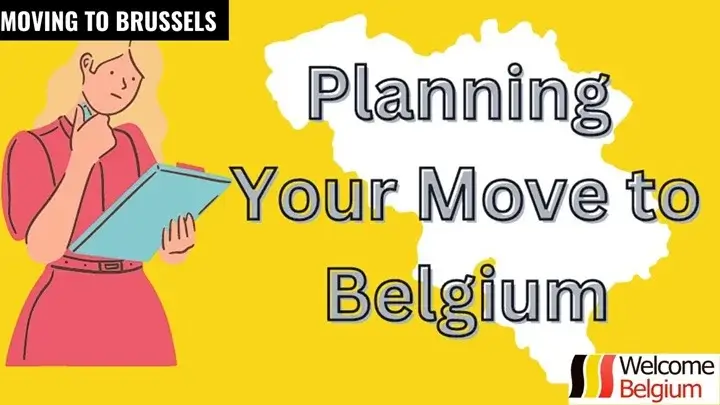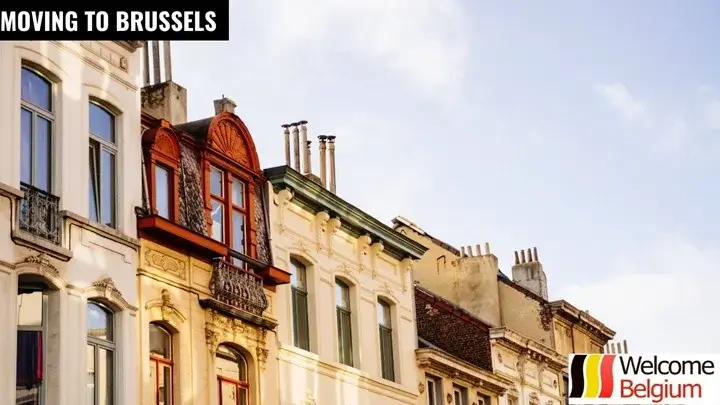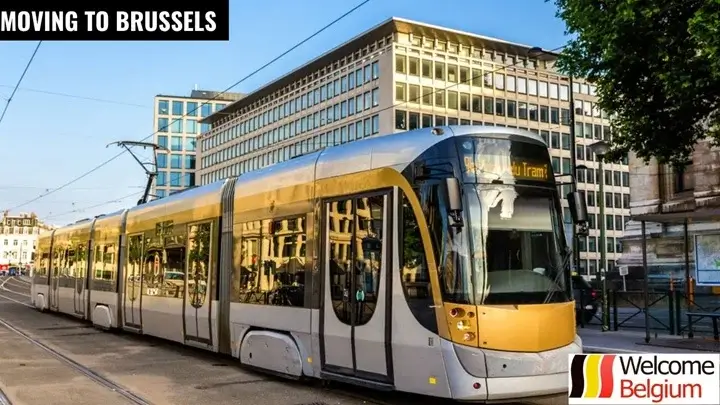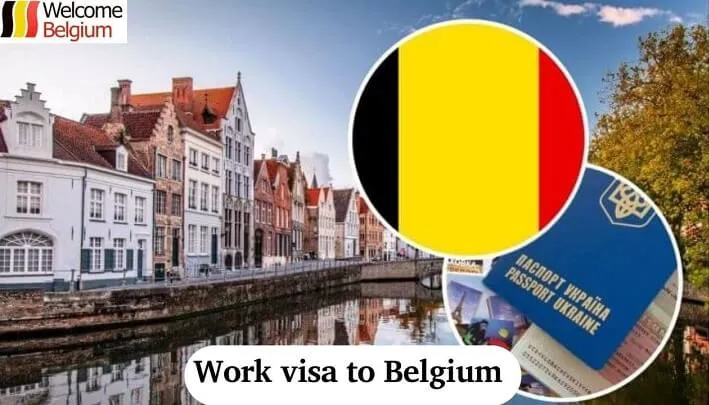Brussels, the heart of Europe, attracts those who are looking for new opportunities for life and career. The capital with a unique culture, developed infrastructure and an international atmosphere is suitable for expats. In this article, we will tell you how to prepare for the move, find housing, settle into work and use the transport system to make your transition as comfortable as possible.
Preparing to move to Brussels
Moving to Brussels requires careful preparation. In order to make the moving process as smooth as possible, it is important to take care of the necessary documents in advance, plan your budget and organize your packing properly.
The first step is to obtain all the necessary documents to enter and stay in Belgium. Depending on your nationality, you may need:
- Long-stay visa – if you plan to stay in Brussels for more than 90 days.
- Residence permit – Non-EU citizens will need a temporary or permanent residence permit.
- Register with local authorities – after arrival you must register with the municipality of Brussels.
Moving to Brussels involves not only paperwork, but also significant expenses. Here are the main cost items:
- Cost of visa and permits: from 100 to 250 euros depending on the type of visa.
- Flights: Tickets to Brussels can cost between 50 and 300 euros.
- Housing: Renting an apartment in Brussels will cost on average between 700 and 1,500 euros per month.
- Transportation of items: the cost of transportation can range from 200 to 1,000 euros, depending on the volume and distance.
Proper packing is an important part of preparation. To avoid unnecessary expenses, consider the following:
- Select a company for transportation: compare several options, taking into account the cost and reviews.
- Pack your items into categories: separate them into essentials and those that can be delivered later.
- Prepare important documents: Always have your passport, visa, health insurance and all registration documents with you.
Moving to Brussels, despite its attractiveness, can face a number of difficulties. One of the main problems is bureaucracy, especially for those planning to immigrate to Belgium. Obtaining visas and residence permits can take longer than expected, and sometimes there are difficulties with paperwork. In addition, finding housing in Brussels can be a complicated and expensive process, especially in popular areas. And don’t forget about the cultural differences that can affect adaptation to a new environment.
Find out more about alternatives to living in the capital in our article on Antwerp.
Advice:
Prepare all documents in advance to avoid unexpected delays and stress during the moving process.
Housing in Brussels
The housing market in Brussels is active and diverse, offering many options for renting and buying. It is important for expats to understand that renting is the main way to live in the first years, especially if you are not yet sure how long you want to stay. Buying a property is possible, but requires more careful consideration and understanding of local laws, which will make life in Brussels easier.
Brussels is a city with different districts that can suit different types of people. Here are some of them:
- Ixelles: a dynamic and multicultural district popular with students and young people.
- Saint-Gilles: known for its cultural atmosphere, ideal for creative people.
- Charleroi (Schaerbeek): an area with good transport accessibility and relatively low rental prices.
- European Quarter: for those who want to be close to European institutions, with high-quality infrastructure.
- Laeken: a quieter area, known for its green surroundings and affordable housing prices.
You can use various channels to search for housing:
- Real estate agencies: help find housing, but services can be expensive.
- Online platforms: for example, Immoweb, Zimmo, which offer a large number of offers.
- Social media and forums: Useful for finding shorter term or lower price rentals.
Approximate prices: rent of apartments and houses.
| Property type | Location | Average rental price (per month) |
| One-room apartment | City center | 800 – 1,200 euros |
| Two-room apartment | Areas near the center | 1,200 – 1,500 euros |
| Three bedroom apartment | Districts around Brussels | 1,500 – 2,200 euros |
| House | Brussels outskirts | 2,000 – 2,500 euros |
Want to know more about the history of Antwerp? Read our article.
Advice:
Be prepared for the fact that many apartments may be rented unfurnished, so clarify this point in advance.
Work and career
Brussels, as an international hub, offers many opportunities for professionals from all over the world. Working here means being part of a dynamic and multicultural work environment. Among the professions in demand for expats are IT specialists, engineers, marketers, financial specialists, as well as workers in the education and healthcare sectors.
The employment process in Brussels begins with searching for vacancies on major platforms such as LinkedIn, Indeed and local sites. When creating a CV, it is important to adapt it to local requirements, focusing on professional achievements and work experience. The interview is usually held in one of the official languages of Belgium (French, Dutch or English), so knowledge of at least one of them is a must.
Taxes and salaries in Brussels depend on your profession and income level. The Belgian tax system is progressive, meaning that the tax rate increases with your income. The average salary in Brussels ranges from 2,500 to 3,500 euros per month, but for highly qualified professionals in the IT or financial sector it can be significantly higher.
Here is a table with estimated salaries for locals and expats in Brussels for various professions. This data is based on the average salary in 2024 and varies depending on experience and company.
| Profession | Average salary for local residents (per month) | Average salary for immigrants (per month) |
| IT specialist (developer) | 3,500 – 5,500 euros | 3,000 – 5,000 euros |
| Financial analyst | 3,200 – 4,500 euros | 2,800 – 4,200 euros |
| Marketer | 2,500 – 3,800 euros | 2,300 – 3,500 euros |
| Engineer (mechanic/construction) | 3,000 – 4,800 euros | 2,800 – 4,500 euros |
| Doctor | 4,000 – 6,500 euros | 3,800 – 6,000 euros |
| Teacher (secondary school) | 2,500 – 3,800 euros | 2,200 – 3,400 euros |
| Service worker | 1,800 – 2,400 euros | 1,600 – 2,200 euros |
| Sales Specialist | 2,500 – 4,000 euros | 2,200 – 3,800 euros |
| Lawyer | 3,500 – 5,800 euros | 3,000 – 5,500 euros |
| Project Manager | 3,500 – 5,200 euros | 3,000 – 4,800 euros |
| Marketing Specialist | 2,500 – 4,000 euros | 2,200 – 3,800 euros |
Notes:
- Salaries depend on experience, skill level and specifics of the job.
- Newcomers can usually start with a slightly lower salary, especially if they don’t speak all of Belgium’s official languages (French or Dutch), but experience in international companies or professional qualifications can boost income.
- It is important to note that in Brussels there is also a significant difference in salaries depending on the sector (IT, finance, medicine, etc.).
This data gives a general idea of salaries, but it is recommended to research specific jobs and companies.
List of in-demand professions for expats in Brussels:
- IT specialists (developers, system administrators)
- Financial analysts and consultants
- Engineers
- Marketers and sales managers
- Education and healthcare professionals
The working environment in Brussels is flexible and respectful of personal time. The average working day lasts around 38-40 hours, and the work culture is focused on teamwork and career-life balance. Punctuality and attention to detail are highly valued in Belgium.
Advice:
Before you start looking for a job, learn about the specifics of Belgian labor laws to avoid unexpected tax and legal problems.
Brussels transport system
Brussels is a city with a well-developed transport system, which includes metro, buses and trams, providing convenient transportation around the capital. Public transport in Brussels is the main mode of transportation for most residents and tourists. Metro and trams connect different areas of the city, and buses cover remote areas. Transport cards can be purchased at the metro station or through mobile applications.
Bicycles and scooters are also popular in Brussels, and can be rented via mobile apps. They are a convenient way to get around the city, especially for short trips.
Approximate prices for transport:
- A single journey by metro/tram/bus costs 2.10 euros.
- A monthly pass costs around 50 euros.
- Car rental – from 30 euros per day.
- Bicycle rental – from 5 euros per hour.
If you plan to rent or buy a car, the registration process includes obtaining Belgian documents, paying the registration fee and insurance. Car rental prices range from 30 to 80 euros per day depending on the model, while buying a car can cost from 5,000 euros for a used car. This affects the cost of living in Brussels.
Find out more about Antwerp attractions in this article.
Advice:
For a greener and more economical way to get around Brussels, use bicycles and scooters, which can be rented directly through mobile apps.
Adaptation in Brussels
Moving to Brussels is not only a new home, but also a new cultural experience. The official languages of Brussels are French and Dutch, and depending on the area of the city, most communication will take place in these languages. However, Brussels is an international city, and many locals speak fluent English, making it much easier for English-speaking expats to adapt. Knowing at least one of the local languages will help you integrate and make connections faster.
Local customs can also be unusual for newcomers. For example, in Brussels it is customary to greet everyone you meet in small shops and on the street, even if you don’t know them. It is also worth considering that the Belgians are a rather reserved people, and open expressions of emotions or loud conversations can be perceived as disrespect.
To establish social connections and make new friends, the best way is to actively participate in expat events or local cultural events. Brussels offers many clubs, meetups and events for foreign residents, which helps to quickly integrate into society. You can also try visiting local cafes and parks, where informal meetings often take place. It is important to take the initiative and be open to meeting new people.
Read about the churches and cathedrals of Antwerp in this article.
Advice:
Brussels is a city with many parks and squares, ideal for strolling and meeting new people.
Adaptation tips and answers to frequently asked questions (FAQ)
- How to open a bank account?
To open an account in Brussels, you will need an identity document and proof of address. Most banks offer services in English, French or Dutch. The simple registration process can take between 30 minutes and an hour. - Which schools are best for expat children?
There are many international schools in Brussels that offer programs in English, French, and other languages. Among the best are the Brussels International School, the American School of Brussels, and the European School. The choice depends on your language and educational program preferences. - How to access healthcare?
Once you register with your local healthcare service (RIZIV), you will receive health insurance that covers your treatment. Belgium has a well-developed healthcare system and doctors often speak English. For urgent cases, you can go to the nearest hospital. - Features of the local climate and how to get used to it?
The climate in Brussels is moderately maritime: mild in winter, not hot in summer. Precipitation is possible all year round, especially in spring and autumn. To get used to rainy weather, it is better to carry an umbrella and warm clothes. An active lifestyle and walks in the fresh air help to get used to the climate. - 10 practical tips for comfortable adaptation:
- Learn basic phrases in French or Dutch.
- Download local apps for transportation routes and orders.
- Join local clubs or expat events.
- Find a market to buy fresh produce.
- Explore the public transportation system.
- Learn about local holidays and traditions.
- Attend cultural events and exhibitions regularly.
- Walk through the districts of Brussels to get to know them better.
- Don’t hesitate to ask your neighbors for help.
- Get used to the local cuisine – it is an important part of the culture.







